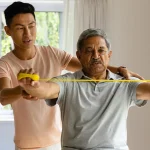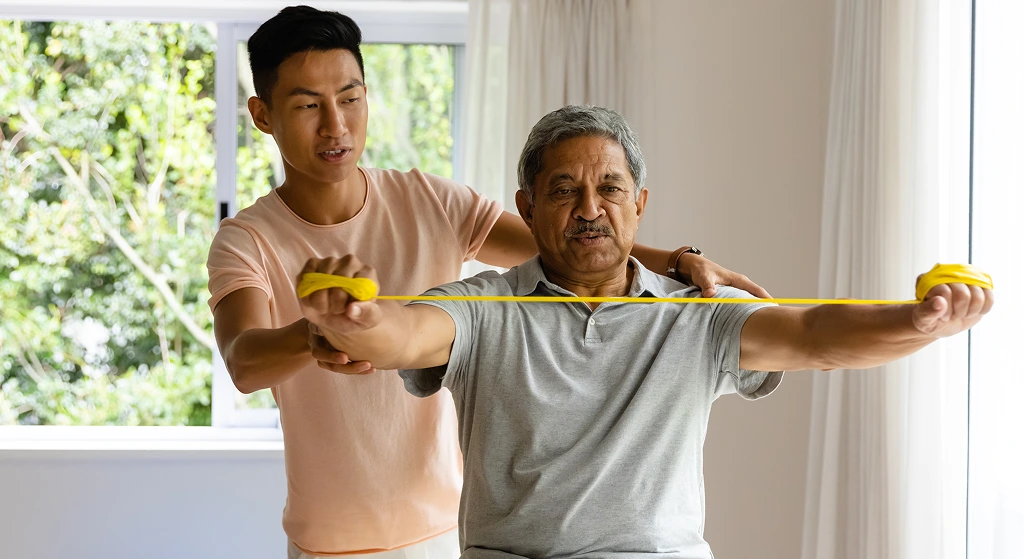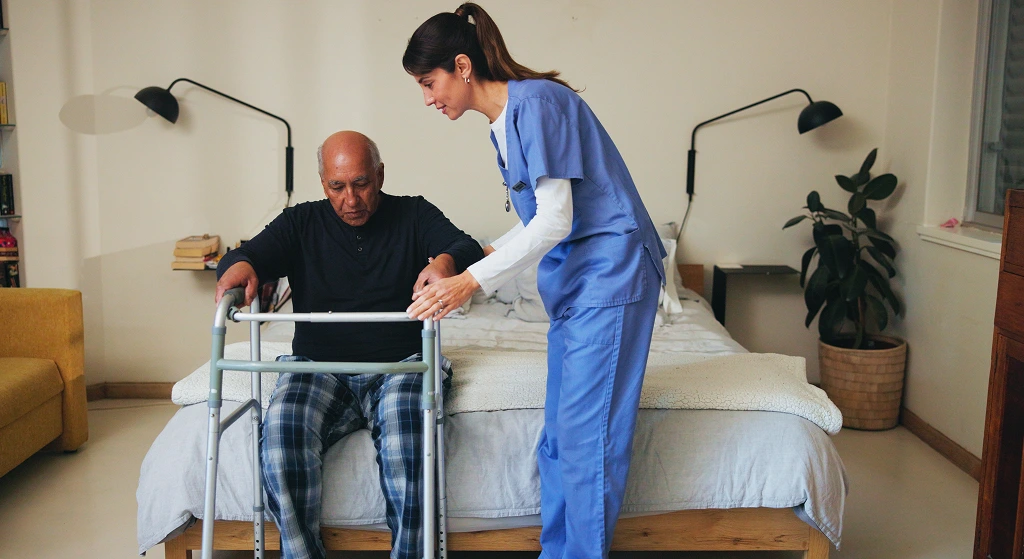The recovery process from surgery does not end in the hospital. It continues at home, where your body demands the appropriate assistance and treatment to build strength and function. Home physiotherapy after surgery is now an important aspect of healing and provides patients with personalised, efficient, practical, and convenient treatment in the privacy of their homes. If you’ve had the procedure of replacing your joint, spinal surgery and abdominal surgeries, or orthopaedic surgeries, home physiotherapy is a key factor in speeding recovery as well as lessening the risks.
Why Post-Surgery Physiotherapy Is Crucial
Following surgery, the body experiences major transformations. Joints stiffen, muscles weaken, and mobility becomes limited because of inactivity or surgical injuries. If not treated properly, it can result in long-term pain, decreased performance, or even long-term impairment.
The goal of post-operative physiotherapy is to
- Enhance flexibility and mobility
- Bring back strength and coordination
- Help prevent complications, such as muscle atrophy and blood clots
- Increase circulation and lessen swelling
- Help improve emotional well-being through encouraging independence and movement
The physiotherapists create a custom rehabilitation plan that is tailored to the specific type of surgery as well as the individual’s health as well and their goals for recovery.
Benefits of Physiotherapy at Home After Surgery
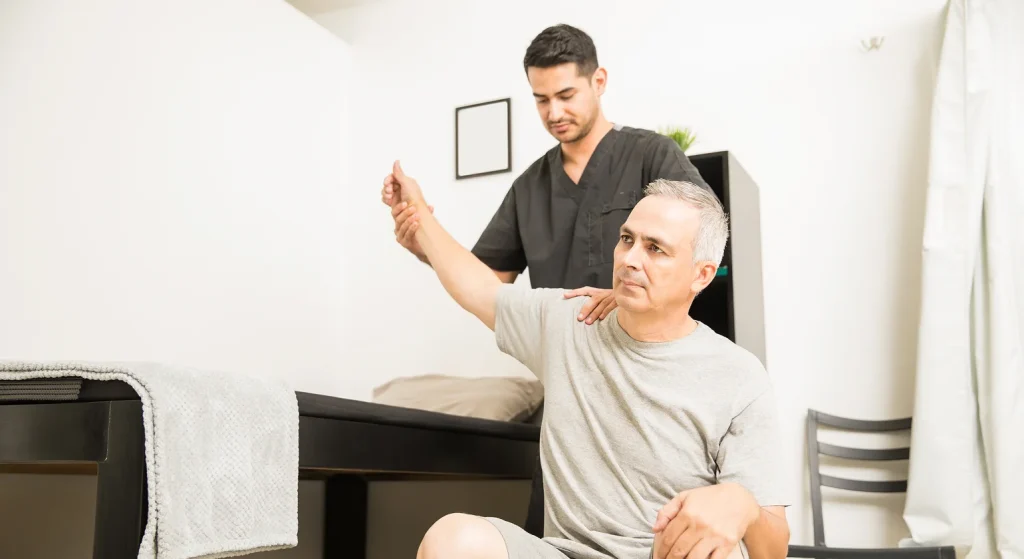
Although hospital-based physiotherapy can be beneficial, many clients prefer the at-home sessions more relaxed and effective. The reasons home-based physical therapy is becoming more popular:
1. Personalised Attention
One-on-one sessions at home are a great option, and the physical therapist will be able to give all their focus to the patient and alter the treatment according to the quick feedback and progression.
2. Convenience and Comfort
The ability to recover at home reduces the requirement for travelling and waiting rooms. These could be mentally and physically demanding for patients who have had surgery.
3. Faster Recovery
A familiar setting makes patients more comfortable and motivated to perform workouts. This is often the reason for better performance and quicker recovery.
4. Reduced Risk of Infection
Clinics and hospitals can expose post-operative patients at risk to illnesses. Care at home reduces the danger dramatically.
5. Family Involvement
The loved ones are able to observe treatment sessions and also learn to help with daily activities and build a solid support of the patient.
Types of Surgeries That Require Post-Op Physiotherapy
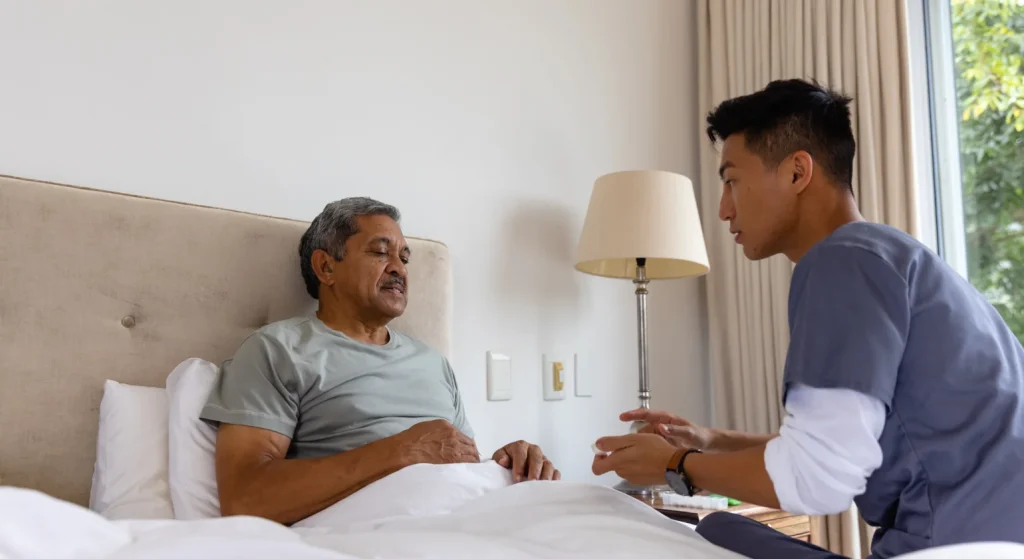
- Joint Replacement Surgeries (Knee, Hip, Shoulder)
- Spinal Surgeries (Discectomy, Laminectomy, Fusion)
- Fracture Fixation and Ligament Repair
- Abdominal Surgeries (Hernia, C-Sections)
- Cardiac Surgeries (Bypass, Valve Replacement)
Each kind of surgery comes with certain protocols. Physiotherapists assure that workouts are safe as well as progressive and in line with the timeframes for healing.
What a Typical Home Physiotherapy Session Includes
A typical post-operative physiotherapy session at home could include:
- Initial evaluation of strength, mobility and level of pain
- Active and gentle movement
- Training for strength by using weights or resistance bands
- Breathing exercises to improve healthy lung function (especially in the aftermath of abdominal or cardiac surgery)
- Methods to manage pain, such as the use of heat or ice, or TENS
- Instruction on safety, posture, as well as adaptive devices
The physiotherapist observes the progression of the patient on a regular basis and adjusts the plan in line with this.
Safety Considerations
The practice of physiotherapy at home is generally secure. However, it’s vital to:
- The physiotherapist is certified and skilled in post-operative rehabilitation.
- The living space is completely free of dangers (like the slippery floor or clutter).
- Training is performed with supervision until the patient is confident.
Recovery Is a Journey–Choose the Right Guide
To treat patients from Delhi and the surrounding regions, Dr. Harish Grover from Painflame Clinic is a renowned professional in physiotherapy post-operatively. The approach of Dr Harish Grover combines expertise in medicine as well as compassion and ingenuity to ensure every patient is treated with the highest quality of care in their own home. It doesn’t matter if it’s to regain strength following an injury or joint replacement, or restoring mobility following surgery on the spine Dr. Harish Grover and his team at Painflame are renowned names in the field of at-home rehabilitation.
Frequently Asked Questions (FAQs)
When can I get started with physiotherapy after surgery at home?
It is dependent on the kind of operation; however, generally, physiotherapy starts within 24 hours of approval from a medical professional.
Does home physiotherapy prove the same as that in hospitals?
If performed by skilled and experienced professionals, home physiotherapy is as effective or more effective because of the comfort and consistency.
Do I require special equipment to perform physiotherapy at home?
But not all the time. The physiotherapists usually carry portable equipment and advise using everyday home items to exercise.
What's the duration of post-operative physical therapy generally take?
The duration varies according to the surgical procedure and the progress of the patient, from a few weeks to some months.
Do family members have the ability to be a part of physical therapy sessions?
Absolutely! The involvement of the family is encouraged because it increases morale as well as aids in supporting exercise even when the therapist isn't there.
